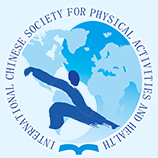Keywords
health, health education curriculum, research in health education
Publication Date
2-2023
Abstract
The purpose of this study was twofold: 1) review research results of health education in China and help readers gain a better understanding of the current profiles of research in health education curriculum and 2) provide a theoretical basis for future research in health education curriculum. Using key words such as health education curriculum on Chinese National Knowledge Infrastructure (CNKI), we searched and finally obtained 7287 articles. By using the visual analysis function of CNKI, we also analyzed the overall trend of research in Health Education Curriculum. Review of the articles found that the overall trend of research in health education curriculum in China has been growing since 1987, and has been growing at a steady rate since 2000. At present, the health education curriculum in China mainly consists of two forms: One is as part of physical education and health curriculum. The content generally focus on health knowledge, health habits, health concepts, and sports injury management and prevention in sports; The other form is a separate health education course. Its content generally includes mental health and health habits etc. At present, implementation of health education curriculum in China is mainly influenced by course time, teachers' ability and evaluation mechanism. In the current research field of health education curriculum evaluation, there are more studies related to mental health curriculum evaluation, and the research in this area is mostly based on the construction of evaluation models, and more mature research results have been formed. However, the research on the evaluation of health education curriculum in physical education and health curriculum is relatively weak. Based on the progress of current research, future studies in health education curriculum should be carried out in the following aspects: 1) curriculum content: focusing on epidemic prevention and control theory and practice; 2) curriculum implementation: development of physical education teachers' health knowledge literacy; and 3) curriculum evaluation: participation of multiple subjects.
DOI
https://doi.org/10.18122/ijpah.020101boisestate
Recommended Citation
Wan, Xue; Liu, Haohui; and Yin, Zhihua
(2023)
"Analysis and Prospect of Research Progress of Health Education Curriculum in China,"
International Journal of Physical Activity and Health: Vol. 2:
Iss.
1, Article 1.
DOI: https://doi.org/10.18122/ijpah.020101boisestate
Available at:
https://scholarworks.boisestate.edu/ijpah/vol2/iss1/1
Included in
Exercise Science Commons, Health and Physical Education Commons, Public Health Commons, Sports Studies Commons


